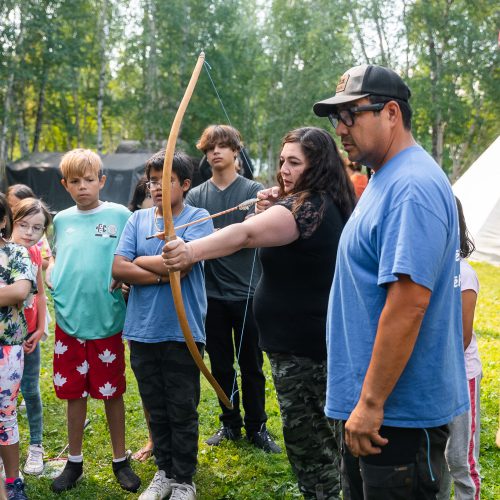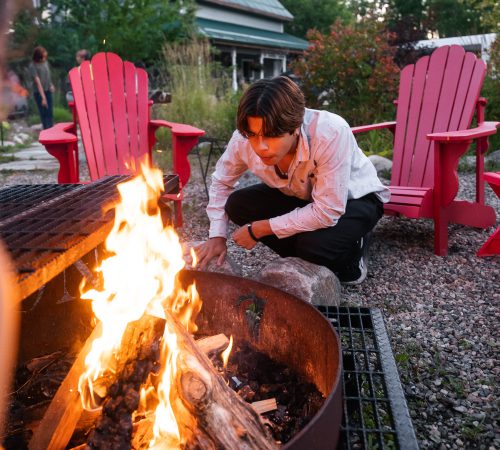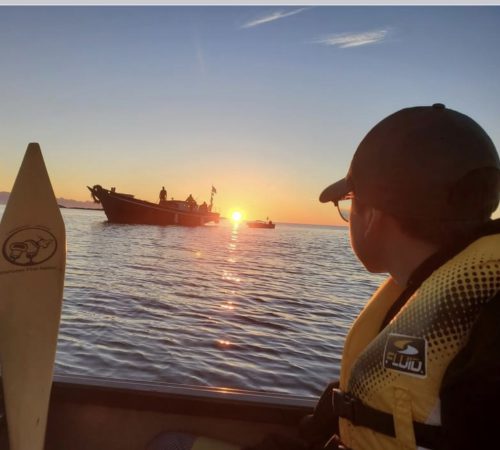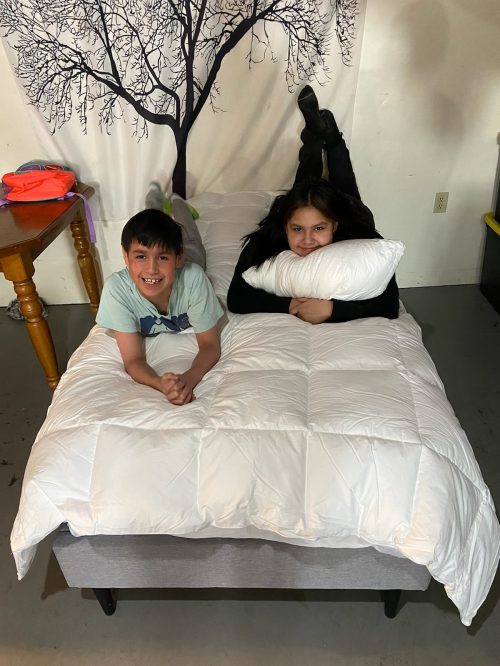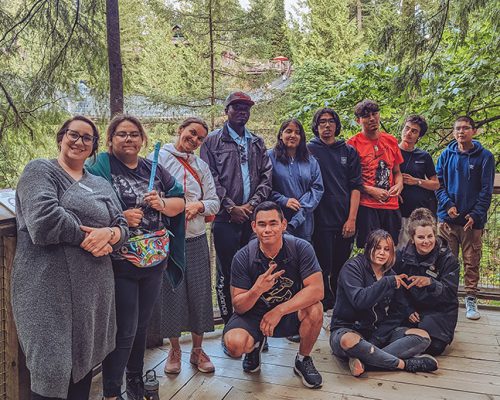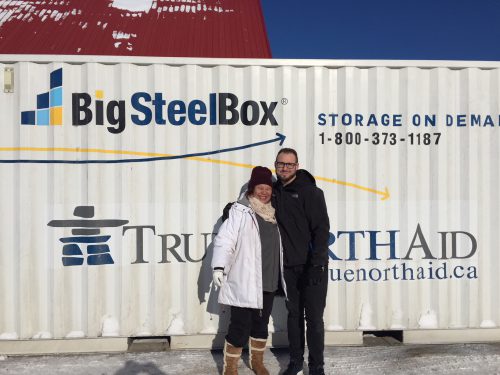Established in 2009, True North Aid was founded by Rachael McIntyre (Brown) of Ottawa, ON. Having joined her grandfather on several trips to the north, Rachael witnessed first-hand the inequities faced by many remote Indigenous communities and a lack of access to necessities that many Canadians would take for granted.
Inspired by humanitarian work that she had taken part in overseas, Rachael returned to Canada with a mission of starting a Canadian charity dedicated to supporting northern & remote Indigenous communities with practical humanitarian support. In 2012, True North Aid became a registered charity.
In True North Aid’s early days, Attawapiskat, ON, experienced a food emergency and a significant housing crisis. True North Aid stepped in to provide emergency food support and furniture for many of the homes in the community. This project offered national exposure and highlighted the real need for True North Aid’s work.
From 2013 to 2016, George Woodward became the Executive Director of True North Aid. He worked with groups throughout the Greater Toronto Area to provide practical assistance to communities along the James Bay coast through winter gear, heaters, clothes, and other necessities. In partnership with several organizations, True North Aid also provided hundreds of layette bags filled with critical care items for young mothers and infants at the birthing center in Iqaluit and Igloolik in Nunavut.
In 2017, True North Aid went through another change in leadership. With little money and no partners, Kenneth Smid ramped up operations as the new Executive Director. Over the next six years, as Canadians have turned their attention to the challenges Indigenous communities face in Canada, hundreds of volunteers and thousands of donors will discover True North Aid and come alongside to support our work through volunteerism and financial contributions.
Since then, True North Aid has doubled annually and supported hundreds of community-led projects. In addition, hundreds of thousands of pounds in supplies have made their way to northern communities in Canada.
True North Aid is inspired by people who want to make a positive change in Canada. We are proud to stand in solidarity with Indigenous Peoples and their basic human right to provide for their families and communities. In all that we do, True North Aid recognizes the incredible injustices of the past and their great impact on the present. True North Aid continues to commit to truth and reconciliation and to see remote and northern Indigenous communities thrive.
